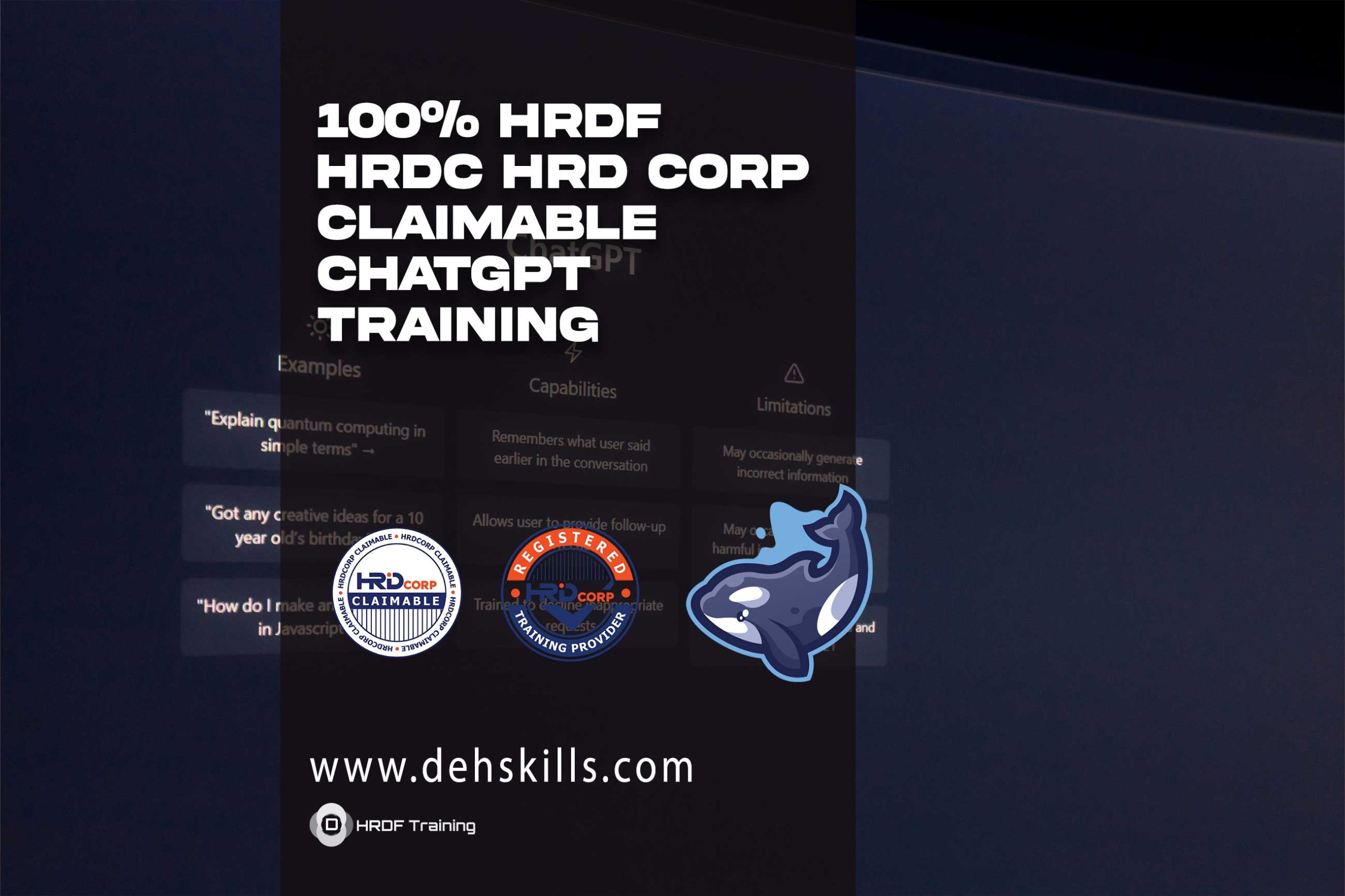HRDF HRDC HRD Corp Claimable ChatGPT Training
AI automates routine and repetitive tasks, reducing the time and effort required from human employees. This shift allows teams to focus on more complex, strategic work that adds greater value to the organization, thus increasing overall productivity.
Overview
HRDF | HRDC | HRD Corp Claimable ChatGPT Training
Incorporating ChatGPT into business workflows can greatly increase productivity, automate monotonous jobs, and enhance decision-making processes. Presented is a comprehensive training program comprising of five courses, specifically curated to provide staff with the necessary knowledge and abilities to seamlessly integrate ChatGPT into their everyday work responsibilities.
Artificial intelligence (AI) streamlines mundane and recurring processes, hence minimizing the time and energy expended by human workers. This change enables teams to concentrate on more intricate and strategic tasks that contribute more significant value to the firm, hence enhancing overall productivity. Improving Decision-Making Artificial intelligence has the ability to efficiently and precisely handle large volumes of data, surpassing human capabilities in terms of speed and accuracy. By harnessing the power of artificial intelligence (AI) to analyze data, organizations may acquire valuable insights and make well-informed decisions promptly, thus maintaining a competitive edge in the market. Manual processes are susceptible to errors, which can result in significant financial and time-related consequences when they need to be corrected. Artificial intelligence (AI) greatly mitigates the likelihood of errors in jobs such as data entry, scheduling, and reporting, hence enhancing the overall work quality.
Although the initial expenditure for AI adoption is necessary, the potential long-term savings are significant. Through the process of automating operations, firms have the ability to decrease labor costs and mitigate expenses associated with errors and inefficiencies. Scalability refers to the ability of a system or process to handle an increasing amount of work or data without compromising its performance or efficiency. Artificial intelligence (AI) systems have the ability to efficiently adapt to a business’s requirements, effectively handling a higher workload without the necessity of hiring additional workers in proportion to the rise. This scalability facilitates the expansion and adjustment of businesses in volatile markets.
Customization and Enhanced User Experience
Artificial intelligence has the ability to customize experiences based on individual tastes and requirements, whether it is for employees or customers. Within the realm of office administration, this could entail providing individualized assistance for various duties, facilitating the acquisition of knowledge and skills, and ultimately improving overall happiness and involvement.
Uninterrupted Accessibility
AI systems have the ability to function continuously without any interruptions or periods of inactivity, unlike humans. Continuous availability guarantees that businesses can consistently offer help, enhance response times, and efficiently handle jobs 24/7. Organizations that adopt AI and technology are more appealing to highly skilled individuals, making them more likely to attract and retain top talent. Contemporary employees desire companies who allocate resources to cutting-edge equipment and procedures that facilitate productive and stimulating workspaces.
Adapting to Changing Customer Expectations
As consumers get more familiar with rapid, customized services driven by artificial intelligence in various areas of their lives, businesses must adjust to fulfill these changing demands. Artificial intelligence (AI) in office management can optimize customer-facing procedures, enhancing service quality and increasing customer happiness.
The Reasons for Abandoning Traditional Methods
Continuing to use obsolete techniques despite these developments and evolving expectations might result in inefficiencies, increased expenses, reduced employee contentment, and a weakened competitive advantage. With the ever-changing corporate environment driven by technology advancements, sticking to conventional methods puts one at risk of becoming outdated. Implementing AI goes beyond staying up-to-date with technological advancements; it involves accepting a strategic tool that provides concrete advantages in office management and corporate operations.






